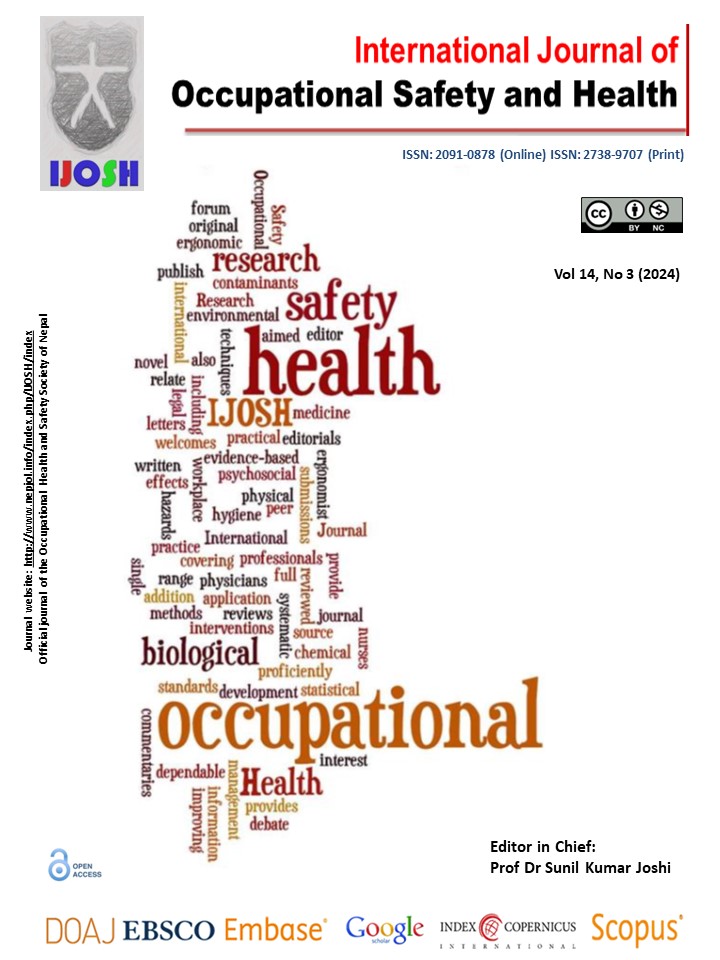Loss of work-life balance, experience of stress and anxiety among professionals working from home - An exploratory study in a western Indian city
DOI:
https://doi.org/10.3126/ijosh.v14i3.50751Keywords:
Keywords: Work from Home; Stress; Anxiety; Work Performance; IndiaAbstract
Introduction: Work from Home, (WFH) gained prominence during the COVID-19 pandemic because of the emphasized positives of flexibility, productivity, efficiency, and saving on commute time. However, over a period of time, experiences of stress, anxiety, and depression started to daunt the WFH employees. A study of the impact of WFH on the work performance, mental health (stress and anxiety), and lifestyle of Indian employees is necessary for the generation of evidence that would contribute to WFH policy building.
Methods: The study was done online during the COVID-19 pandemic in the months of April-June 2021. A link to the Google form was posted on the author’s social media platforms, Facebook and LinkedIn. The survey researched individual work performance, perceived stress, and anxiety, lifestyle practices, and experiences of WFH.
Results: Participants scored high on the dimensions of task performance and contextual performance. (65.3%) were under moderate stress, and (8.9%) were under high stress, and more than fifty percent (55.4%) were experiencing high-state anxiety. The effect of work distraction on perceived stress and state anxiety was found to be significant (p = 0.004). Also, a significant association was observed between feelings of isolation and high-state anxiety (p = 0.005) and between anxiety and stress (p = 0.000).
Conclusion: Teaching and training mindfulness to WFH employees would help in coping with the stress and anxiety attached to WFH. Industries have the opportunity to conceptualize innovative and context-specific strategies to support WFH arrangements and employees’ well-being.
Downloads
Downloads
Published
How to Cite
Issue
Section
License
Copyright (c) 2024 The Author(s)

This work is licensed under a Creative Commons Attribution-NonCommercial 4.0 International License.
This license enables reusers to distribute, remix, adapt, and build upon the material in any medium or format for noncommercial purposes only, and only so long as attribution is given to the creator.





